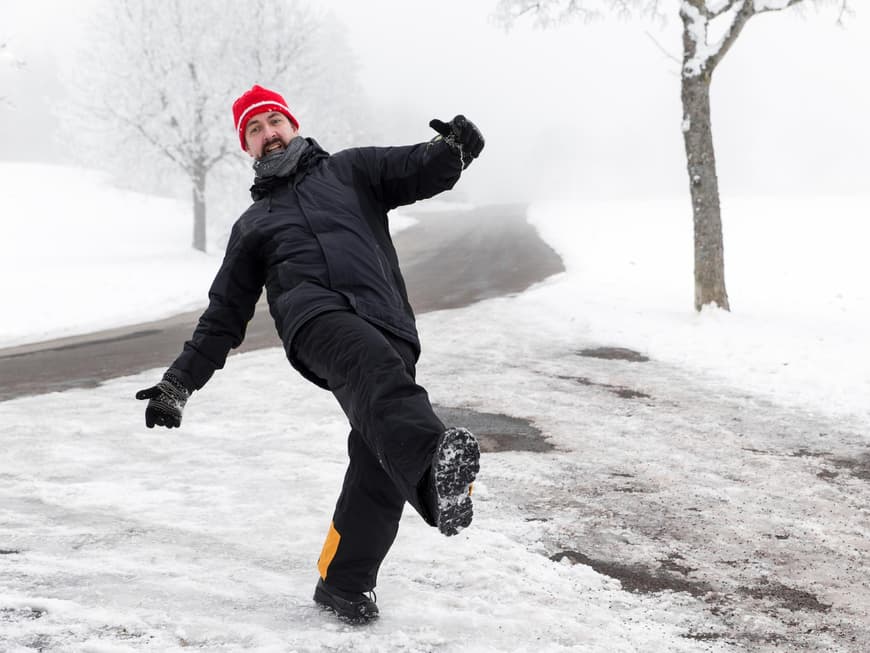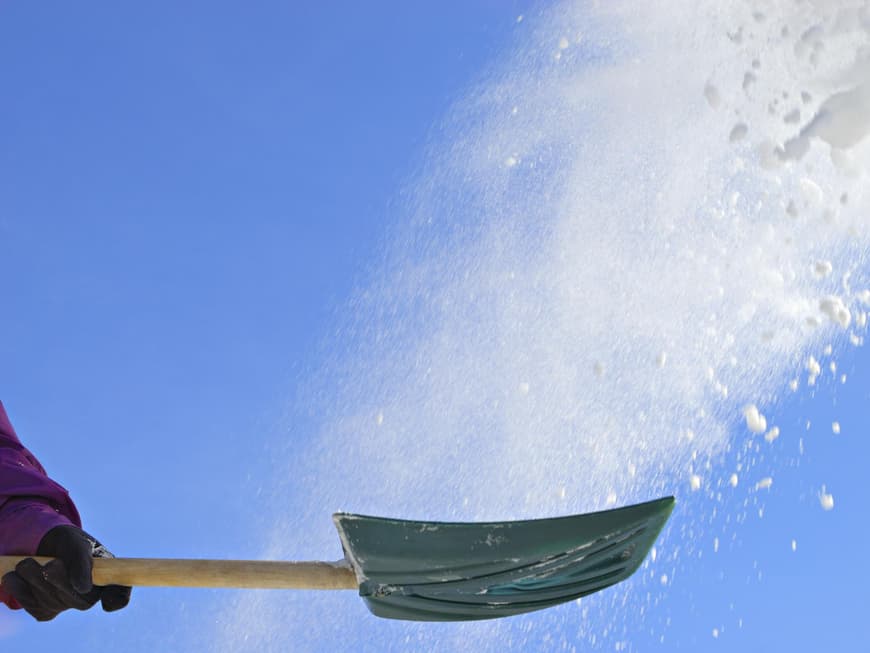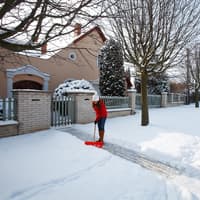If the heating fails at home: rent reduction
If the heating fails in a rented apartment in winter, the rent can be reduced. However, the amount of this reduction varies from case to case. The Berlin Regional Court, for example, has ruled that if the heating fails completely, the apartment is de facto uninhabitable and the rent can therefore be reduced by 100 percent (AZ 65 S 70/92). However, if only individual rooms are affected, the rent may only be reduced by the proportionate amount. The Bonn Regional Court, on the other hand, considers a fifty percent rent reduction to be sufficient in such a case (AZ. 6 S 396/81).
Icy cycle paths: the municipality is liable
The duty to grit also applies to cycle paths in urban areas, as the Federal Court of Justice has ruled (BGH III ZR 200/63). The municipalities are responsible, but they only have to clear areas that are important for traffic and dangerous. The latter are defined as places where cyclists have to slow down, swerve, change speed or change direction, as determined by the Hamm Higher Regional Court (OLG Hamm 9 U 193/92). If the local authority's winter road clearance service neglects its duty to grit the road, a cyclist who has an accident in snow and ice can in principle claim compensation.
Tenants may also have to grit under certain circumstances
Homeowners can theoretically pass on their obligation to clear and grit to their tenants via the tenancy agreement or the house rules. Tenants must then comply with this - if they are unable to do so, for example due to illness or vacation, they must provide a replacement. However, there is one exception - which is best checked with the property management or owner before the first snowfall: chronically ill or frail elderly people may be exempt from this type of clearing obligation if they cannot find a commercial or private replacement to do the job for them (Hamburg-Altona District Court, file no.: 318 a C 146/06). However, the obligation does not go beyond the duty to clear and grit: for example, the tenant is not obliged to clear ice from external rain gutters and downpipes, as the Berlin Court of Appeal ruled (Ref.: 8 U 257/12).
Definitely an obligation: homeowners
In principle, homeowners are responsible for gritting and clearing the sidewalks in front of the house as well as the entrances to the house, the paths to the parking spaces and underground garages and the garbage cans. If the property is bordered by two public roads, both sidewalks bordering the property must be cleared (OLG Brandenburg, Ref.: 4 U 55/07).
Clearing times are between 7 a.m. and 8 p.m.: During this period, the roads must be cleared and gritted; on Sundays and public holidays, this may be an hour later. However: If black ice has been forecast overnight, then gritting must be carried out as a preventative measure (OLG Frankfurt, Ref.: 21 U 38/03). And if it snows several times a day, it must also be cleared more often - this was already decided by the Federal Court of Justice in the 1980s. However, if exceptional weather conditions such as black ice make the clearing obligation almost unreasonable, the homeowner only has to make reasonable efforts to prevent the formation of ice (OLG Munich, Ref.: 1 U 3243/09). Incidentally, the entire path does not necessarily have to be completely cleared - a passageway at least one meter wide is sufficient (BGH, Ref.: III ZR 8/03).








